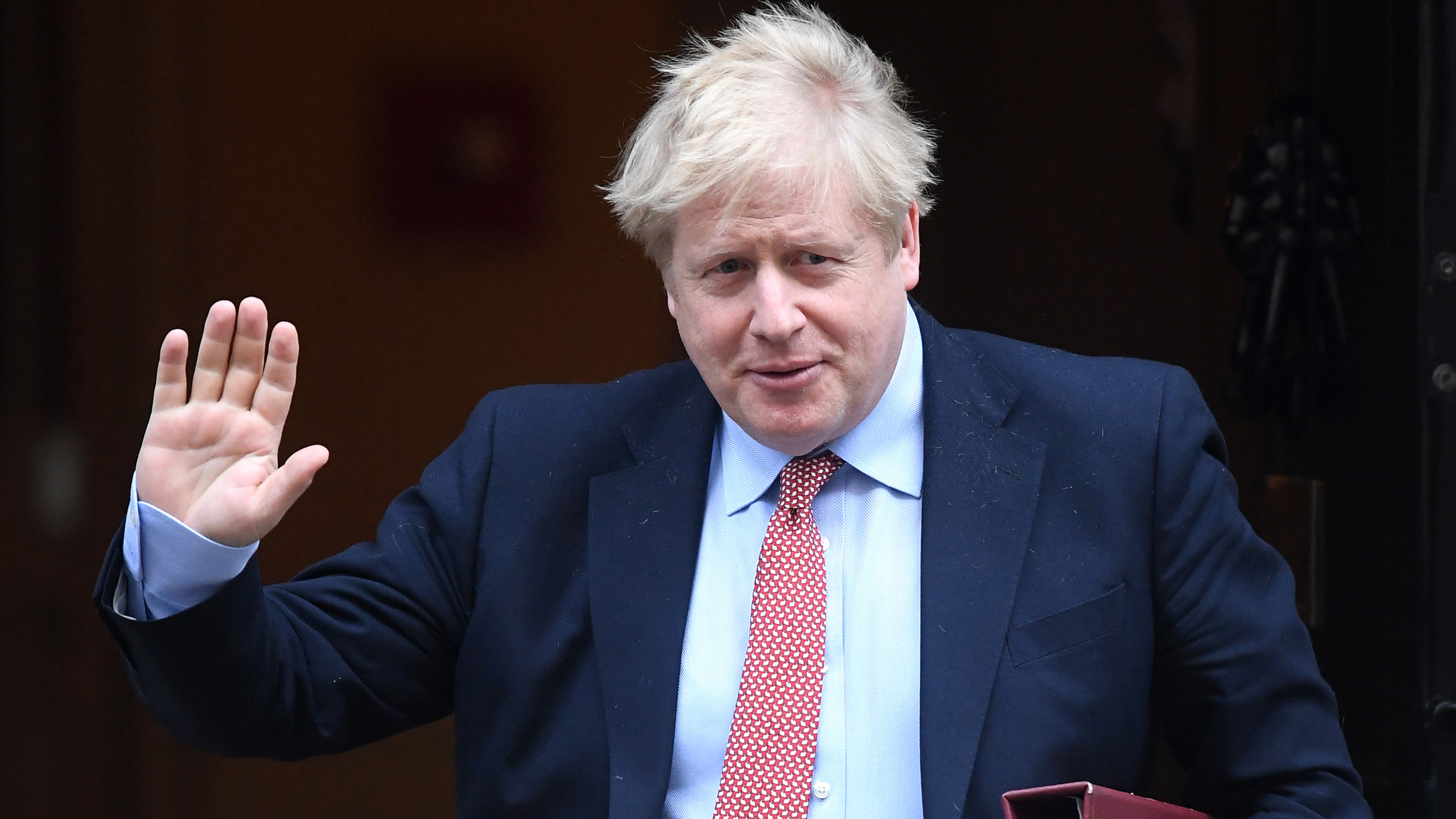UK Prime Minister Boris Johnson released from hospital

Updated April 13 at 8:30 a.m. ET.
British Prime Minister Boris Johnson was discharged Sunday (April 12) from St. Thomas' Hospital and will continue to recover from COVID-19 at his country residence, Chequers.
He had been moved into "standard care" on Thursday (April 9), after spending three nights in the intensive care unit.
Doctors had moved him into the ICU on Monday (April 6) as a precaution in case he ended up needing a ventilator to breathe, The Washington Post reported. Cabinet Office Minister Michael Gove said at the time that Johnson was receiving oxygen, but that he was not on a ventilator, The New York Times reported.
Gove said he didn't know whether the prime minister had developed pneumonia, which is common in more severe cases of COVID-19, the Times reported.
Johnson, 55, had been admitted to St. Thomas', a National Health Service hospital as a precautionary step, because he still had coronavirus symptoms even though 10 days had passed since he was first diagnosed, Foreign Secretary Dominic Raab said during a press briefing Monday (April 6).
A statement from the British government indicated that Johnson had asked Raab "to deputize for him where necessary," the Post reported. Raab will continue to running the government, possibly for as long as a month, BBC News reported.
Sign up for the Live Science daily newsletter now
Get the world’s most fascinating discoveries delivered straight to your inbox.
"On the advice of his medical team, the PM will not be immediately returning to work. He wishes to thank everybody at St Thomas' for the brilliant care he has received," Downing Street said in a press statement, BBC News reported.
Though doctors and scientists still have a lot to learn about this virus and its progression, one study of 138 COVID-19 patients in Wuhan, China, where the outbreak began, suggests that the median time from onset of symptoms to being admitted to the ICU was 10 days, the researchers wrote Feb. 7 in the Journal of the American Medical Association (JAMA).
As of April 13, more than 85,000 cases of COVID-19 had been confirmed in the U.K., with at least 10,600 related deaths.
This story will be updated as more information becomes available.
- England, UK: Latest updates on Coronavirus
- Scotland, UK: Latest updates on Coronavirus
- Northern Ireland, UK: Latest updates on Coronavirus
- Wales, UK: Latest updates on Coronavirus
Originally published on Live Science.
Jeanna Bryner is managing editor of Scientific American. Previously she was editor in chief of Live Science and, prior to that, an editor at Scholastic's Science World magazine. Bryner has an English degree from Salisbury University, a master's degree in biogeochemistry and environmental sciences from the University of Maryland and a graduate science journalism degree from New York University. She has worked as a biologist in Florida, where she monitored wetlands and did field surveys for endangered species, including the gorgeous Florida Scrub Jay. She also received an ocean sciences journalism fellowship from the Woods Hole Oceanographic Institution. She is a firm believer that science is for everyone and that just about everything can be viewed through the lens of science.










